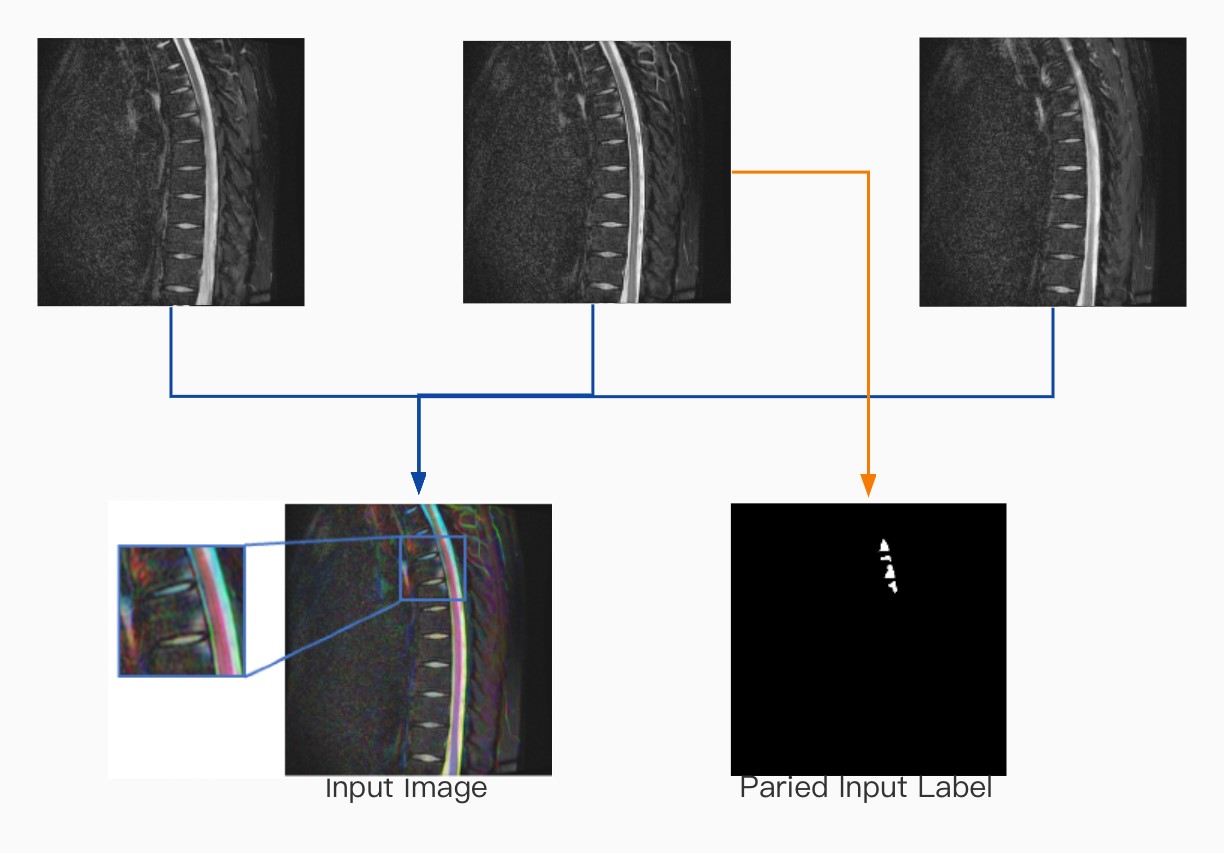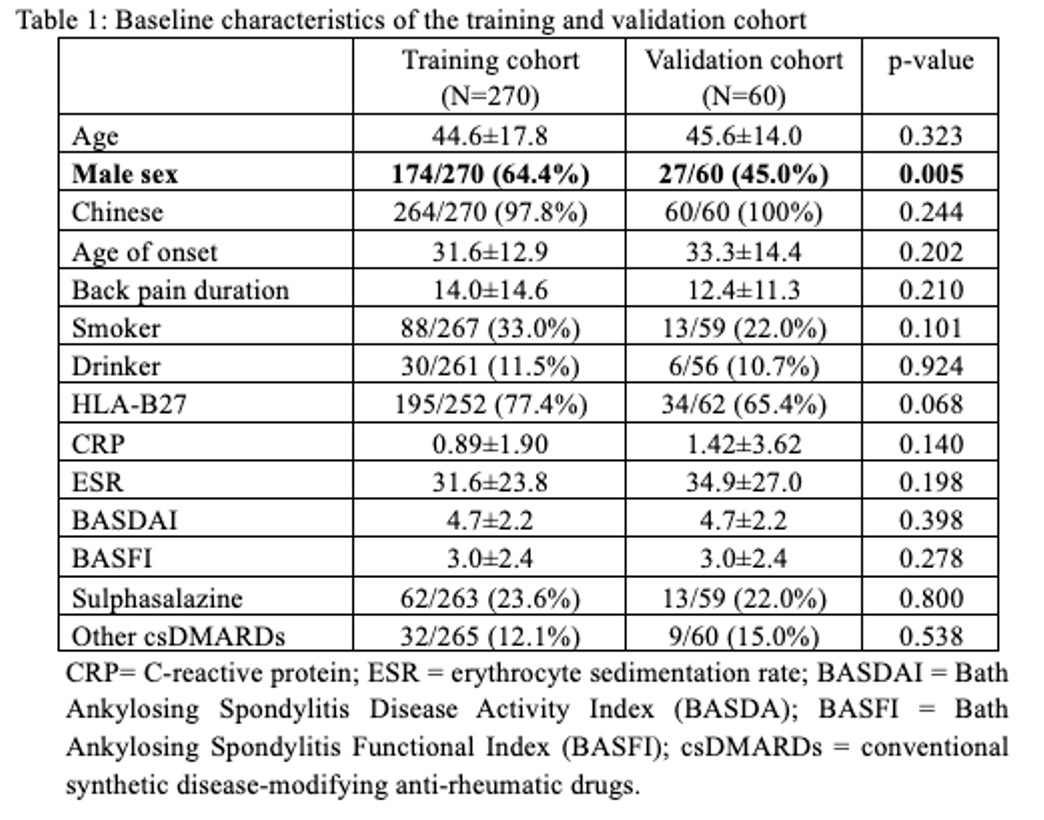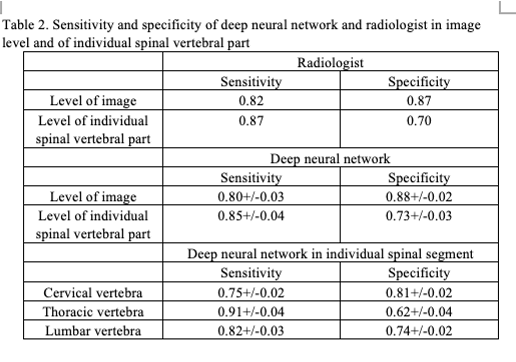Session Information
Session Type: Poster Session B
Session Time: 9:00AM-11:00AM
Background/Purpose: Deep learning has achieved wide applications in different areas of medical imaging analysis. Limited studies have explored the use of deep learning for imaging interpretation in axial spondyloarthritis (SpA). This study aims to develop a deep learning algorithm for the detection of active spinal inflammation in short tau inversion recovery (STIR) sequence magnetic resonance imaging (MRI) in patients with axial SpA.
Methods: A total 330 patients with axial spondyloarthritis (SpA) were recruited. STIR MRI of the whole spine and clinical data were obtained. Spinal inflammation was defined by the presence of an active inflammatory lesion on the STIR sequence. Regions of interests (ROIs) were drawn outlining the active inflammatory lesion. ‘Fake-color’ images were constructed to mimic adjacent MRI slices (figure 1). Images from 270 patients and 60 patients were separated into the training/validation and testing sets, respectively (table 1). Deep learning algorithms were developed using attention-Unet. The performance of the neural network was compared to the image interpretation by a general radiologist blinded to the ground truth.
Results: Active inflammatory lesions were identified in 2891 MR images and were absent in 14590 MR images. The sensitivity and specificity of the derived deep neural network were 0.80±0.03 and 0.88±0.02, respectively. The Dice coefficient of the truth-positive lesions was 0.55±0.02. The area under the curve of the receiver operating characteristic (AUC-ROC) curve of the algorithm was 0.87±0.02. The performance of the developed deep neural network was comparable to the interpretation of a general radiologist with similar sensitivity and specificity (table 2).
Conclusion: A deep neural network was developed to detect spinal inflammation in axial SpA with performance comparable to a general radiologist.
To cite this abstract in AMA style:
Chan S, Lin Y, Chung H, Lee K, Cao P. A Deep Learning Algorithm for MRI Spinal Inflammation in Axial Spondyloarthritis [abstract]. Arthritis Rheumatol. 2023; 75 (suppl 9). https://acrabstracts.org/abstract/a-deep-learning-algorithm-for-mri-spinal-inflammation-in-axial-spondyloarthritis/. Accessed .« Back to ACR Convergence 2023
ACR Meeting Abstracts - https://acrabstracts.org/abstract/a-deep-learning-algorithm-for-mri-spinal-inflammation-in-axial-spondyloarthritis/



